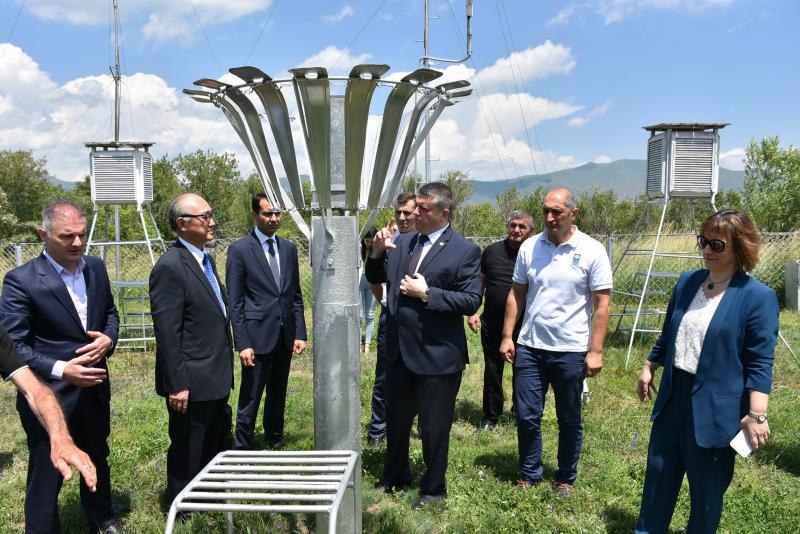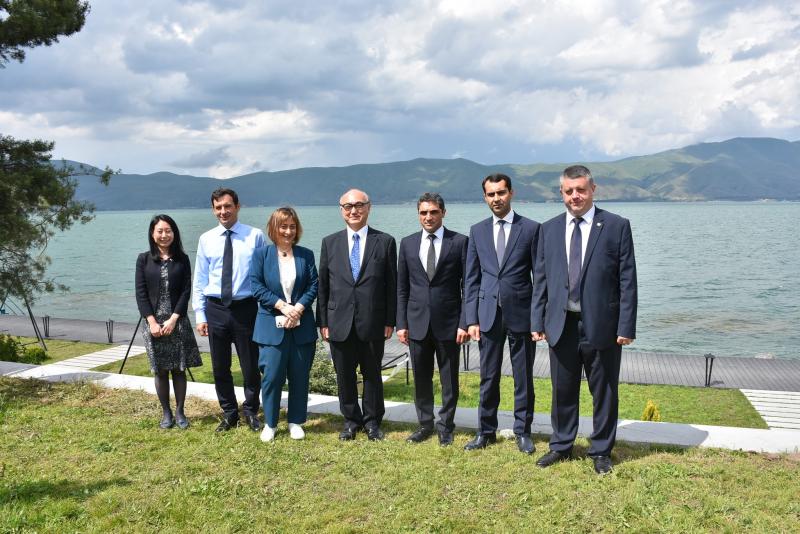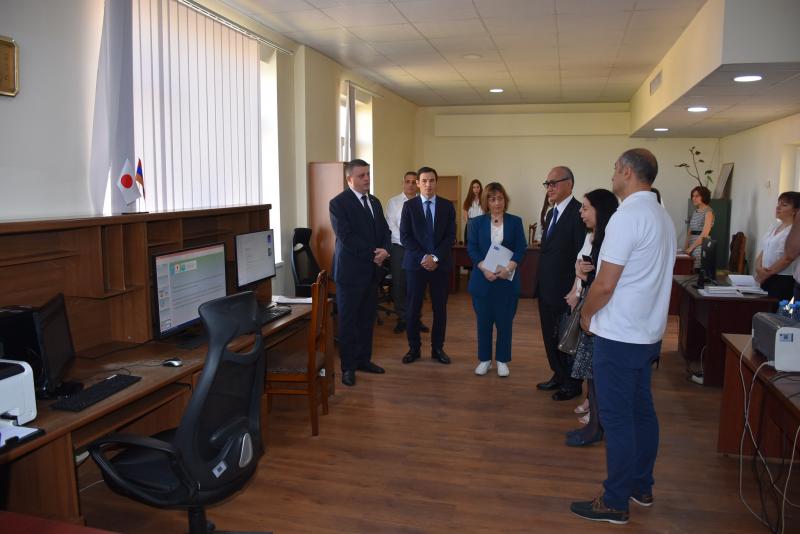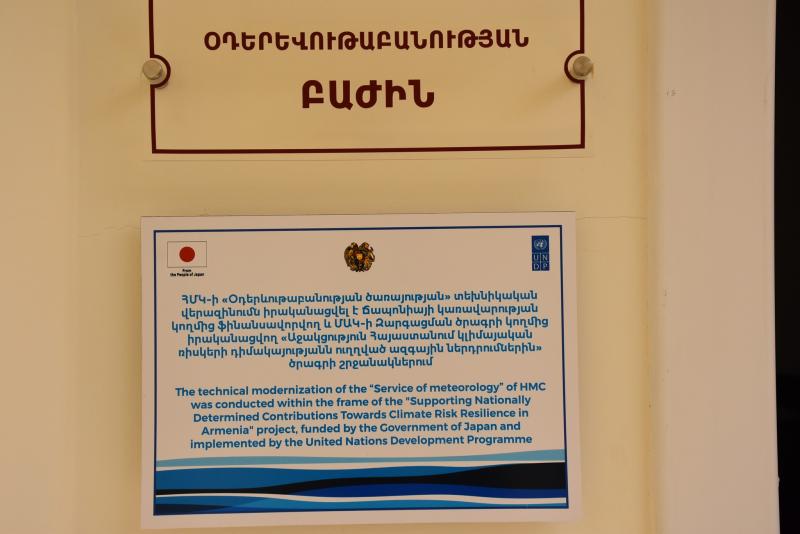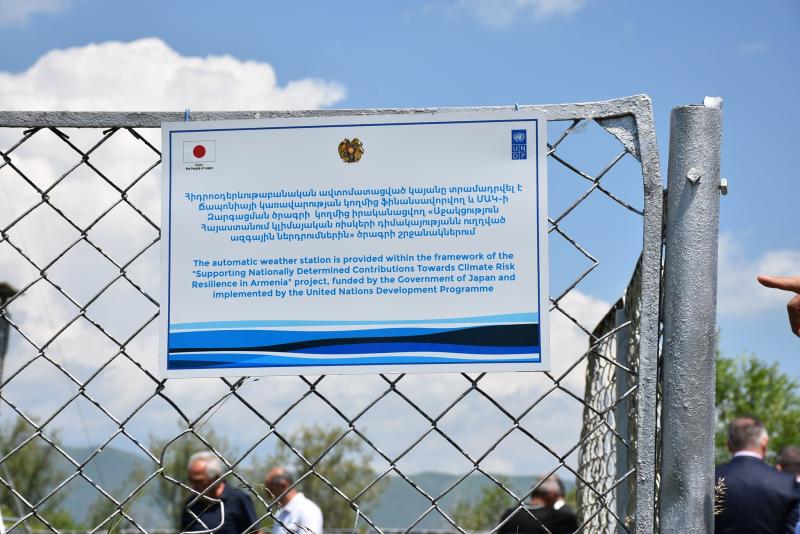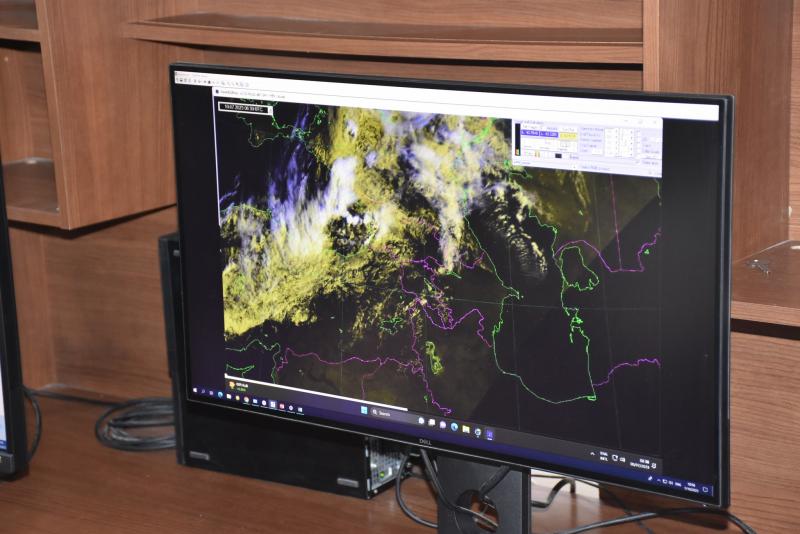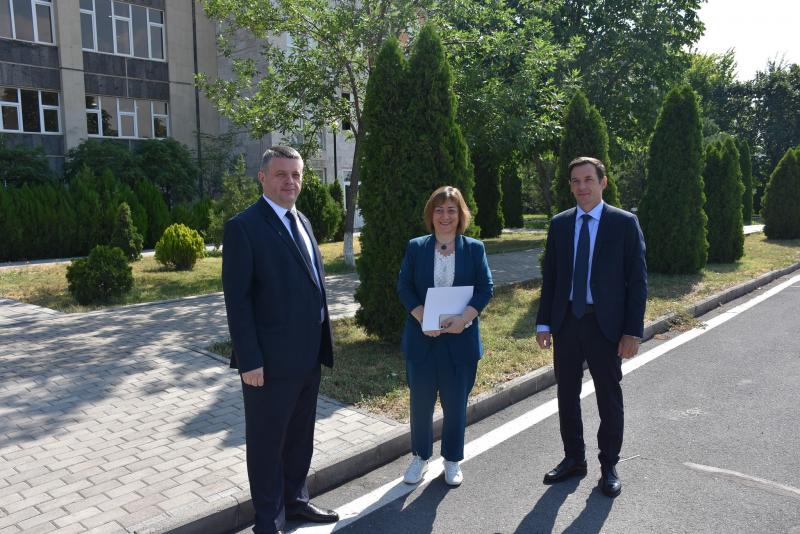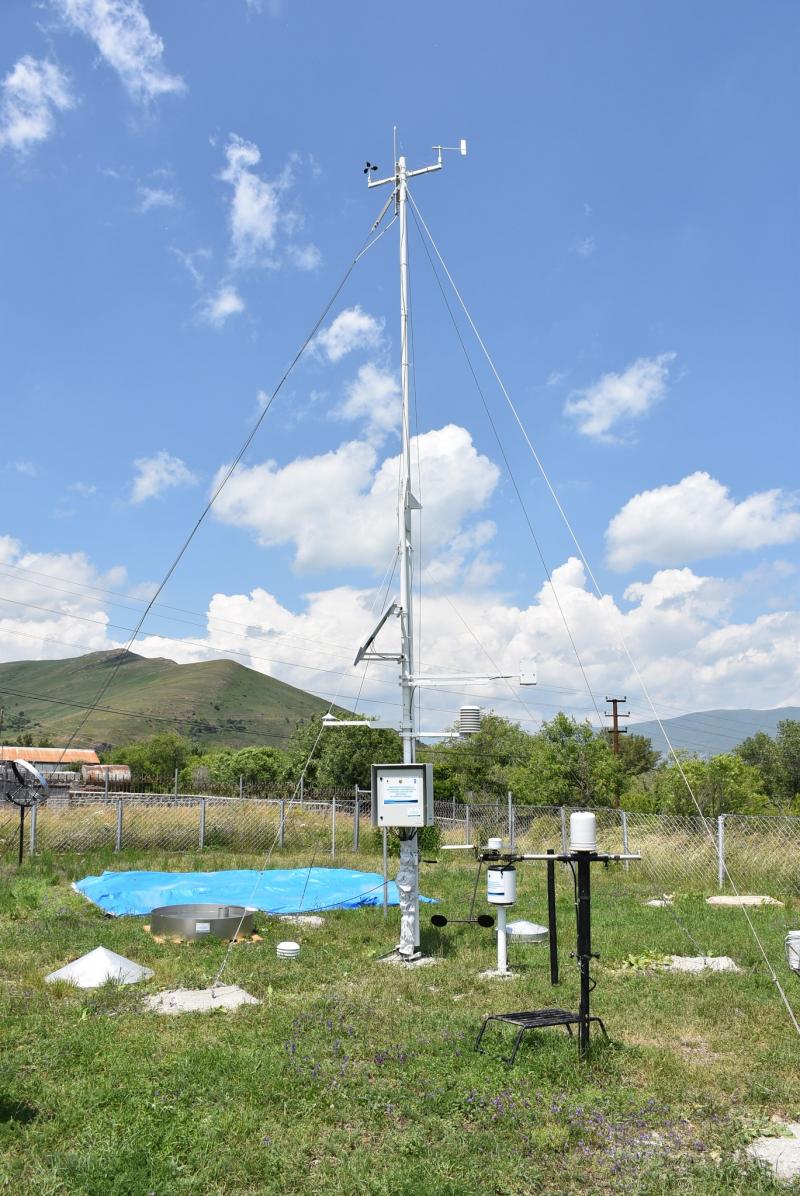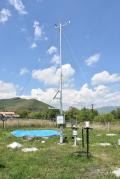On 10 July, RA Minister of Environment Hakob Simidyan, Ambassador Extraordinary and Plenipotentiary of Japan to Armenia Masanori Fukushima, UNDP Resident Representative in Armenia Natia Natsvlishvili, Governor of Gegharkunik region Karen Sargsyan, the as well as representatives of the Embassy of Japan to Armenia, government agencies and UNDP were presented with thee results of the “Supporting Nationally Determined Contributions Towards Climate Risk Resilience in Armenia” project, funded by the Government of Japan and implemented by UNDP.
The Director of the Hydrometeorology and Monitoring Center of the Ministry of Environment of Armenia Levon Azizyan presented the achievements recorded during the modernization of the Center, specifically mentioning the installation of 11 automated weather stations, thanks to which the effectiveness of hydro-meteorological forecasts and monitoring in approximately 80 percent of the territory of Armenia has increased up to 95 percent accuracy.
He also emphasized the introduction of a unified information management system, an updated system for receiving and processing satellite information, the development of the Hydrometeorology and Monitoring Center's official website and mobile application, thanks to which the operational analysis of existing data on weather forecasts, climate risks and possible risk scenarios are immediately available to Armenia’s population and specific stakeholders.
At the hydro-meteorological station located in the Sevan peninsula they got acquainted with the capabilities of the newly installed automatic weather station.
Thanks to the funding by the Government of Japan and effective implementation of the project by UNDP, the hydrometeorological stations in Gegharkunik region have been completely validated, and the Hydrometeorology and Monitoring Center will now be able to carry out weather forecasts on Lake Sevan and especially the level of evaporation, which was not observed before.
UNDP Resident Representative in Armenia Natia Natsvlishvili thanked the Government of Japan, the Ministry of Environment and all partners for this effectively implemented project, hoping that the future projects will also have high results in terms of increasing Armenia’s resilience and developing climate change and adaptation capacities.
The sides particularly emphasized the impressive achievements registered in a short period of time, expressing confidence that the future projects will further deepen the partnership between the relevant scientific institutions, agencies and private sector of Armenia and Japan.


